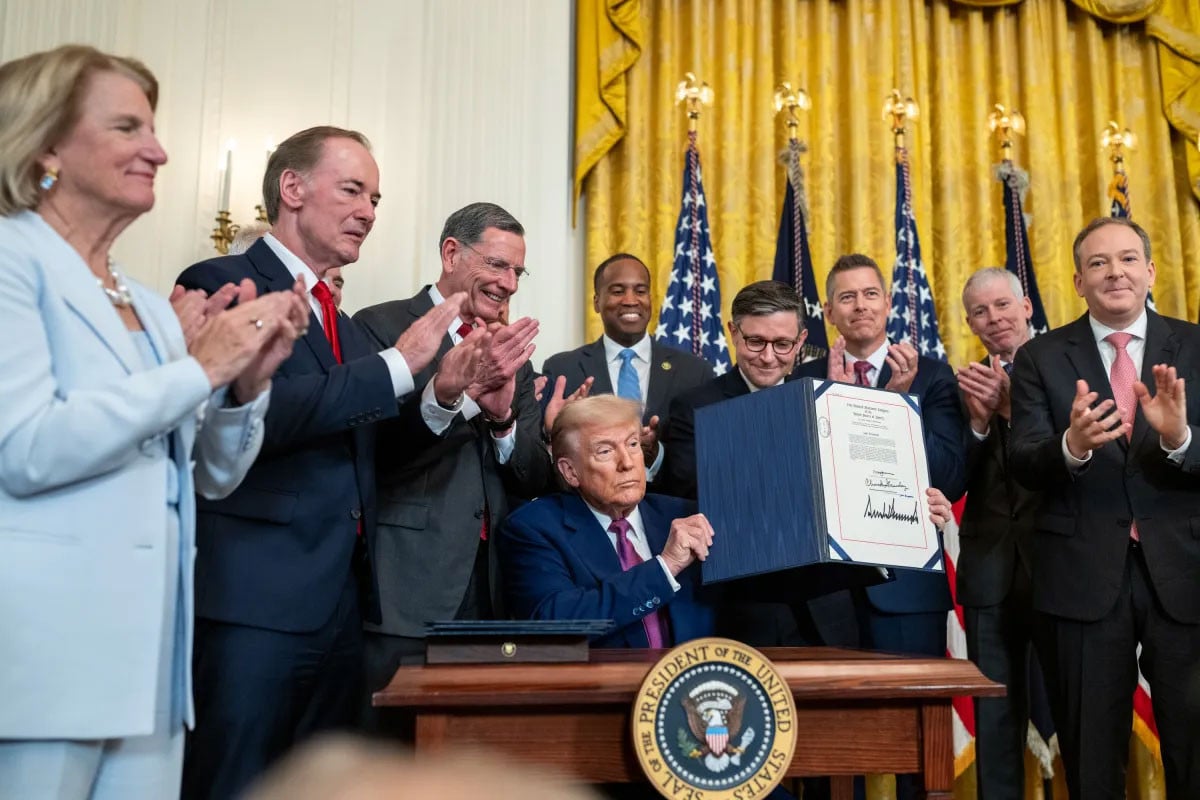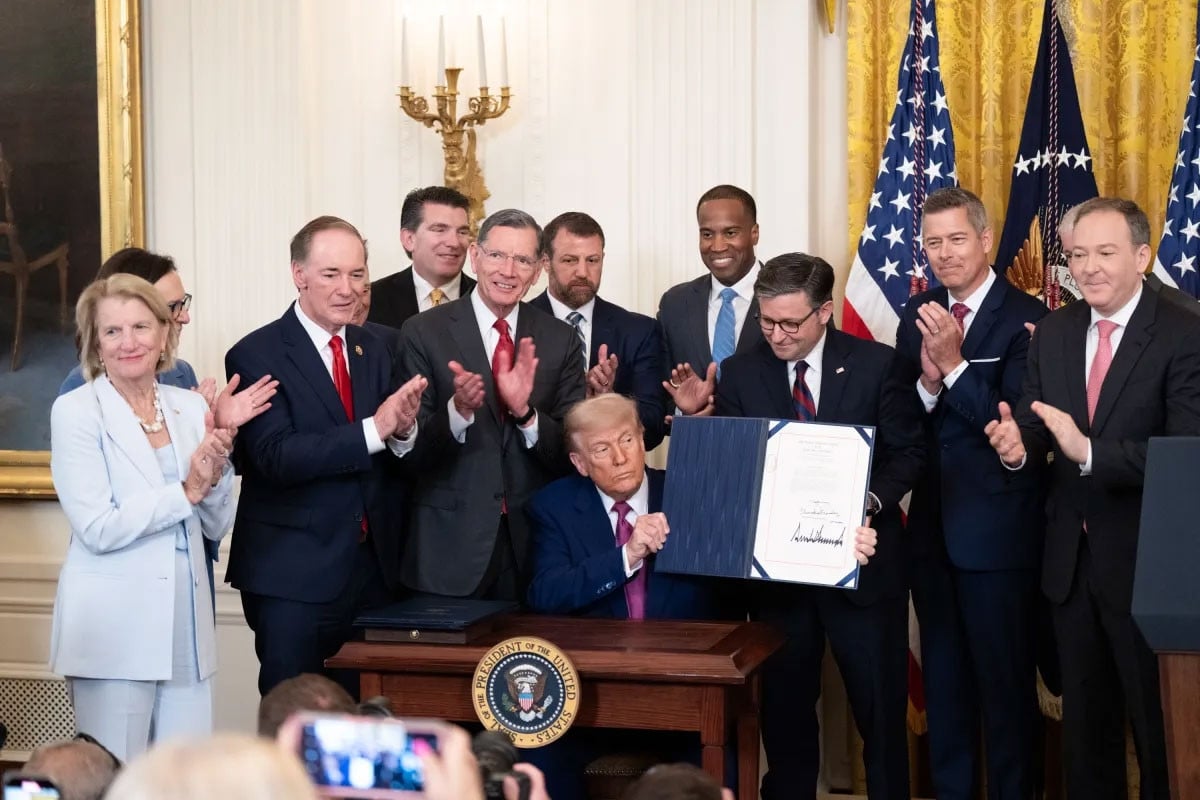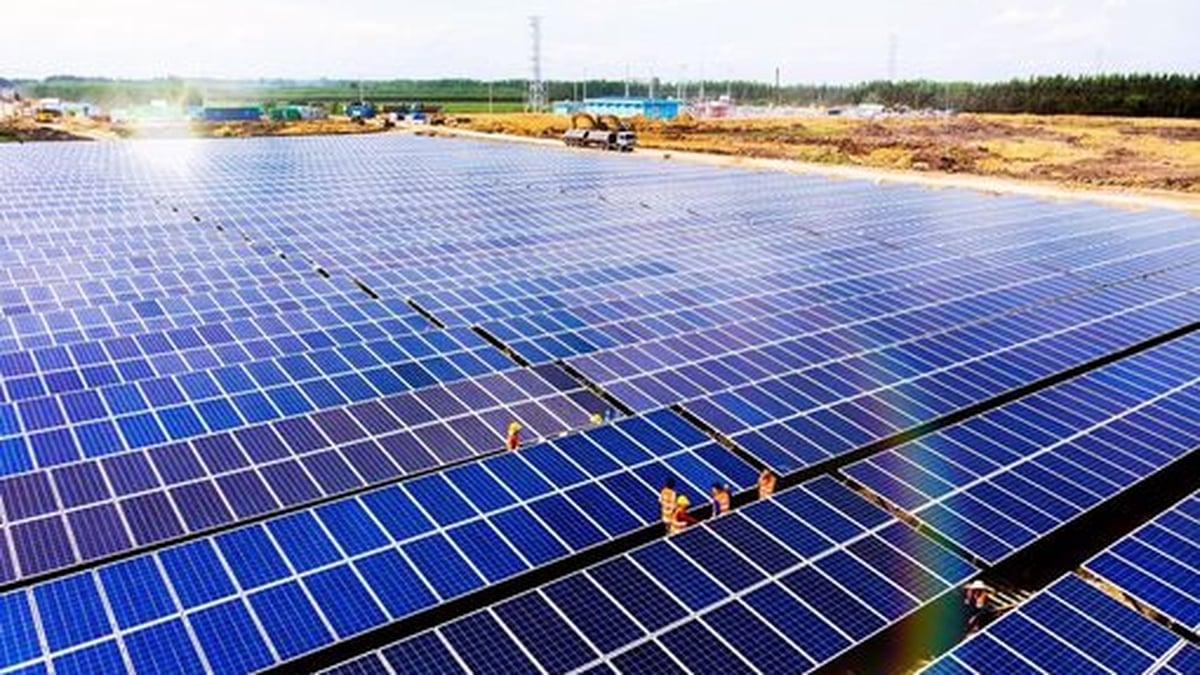According to CNBC , on July 9, US President Donald Trump suddenly announced a 50% tariff on all imported goods from Brazil, effective from August 1.
The 50% tariff is a sharp increase from the 10% tariff proposed in April, which was only partially applied and did not include additional sectoral tariffs.
The new tax policy move against Brazil comes amid diplomatic tensions between the two countries.

Immediately after the event, the Brazilian Real lost more than 2% of its value against the USD. Shares of many large corporations in this country such as Embraer and Petrobras fell sharply.
The Brazilian Foreign Ministry summoned a representative of the US Embassy to protest and rejected Mr. Trump's accusations of unfair trade, emphasizing that the US has a trade surplus of more than 7 billion USD with Brazil in 2024.
Brazil is one of the US's important trading partners, especially in the agricultural and raw materials sectors. This country supplies about 1/3 of the coffee consumed in the US - the world's largest coffee consuming market. In 2024 alone, the US imported about 8 million bags of coffee from Brazil, equivalent to 1.9 billion USD.
Additionally, Brazil supplies more than half of the orange juice consumed in the United States. Other commodities such as sugar, beef, and ethanol also play important roles in exports to the United States.
A 50% tariff would significantly increase the cost of imported products from Brazil, especially coffee - an essential item in the daily life of Americans. With Brazil accounting for more than 30% of the coffee supply, coffee prices in the US could increase sharply, directly affecting consumers and chains such as Starbucks or Dunkin'.
In addition to coffee, the prices of orange juice, sugar and beef are also at risk of rising, adding to inflation in the United States. American consumers, already under pressure from previous price increases, could face higher living costs. U.S. importers will have to find alternative supplies from other countries, but this transition will take time and may not be enough to meet immediate demand.
For Brazil, the US tariffs threaten to inflict heavy damage on an economy that relies heavily on exports. Losing the US market could hit those industries hard.
On the international market, other coffee-exporting countries could benefit from the US seeking alternative supplies. However, Brazil could shift exports to other markets such as China or the European Union, although this would require renegotiating trade agreements and adjusting supply chains.
Brazil's response, through corresponding tariff measures, could escalate trade tensions, affecting global supply chains and commodity prices.
Mr Trump’s tariff announcement has caused a strong reaction in global financial markets, especially in agricultural products. In the long term, the disruption to supply chains could reshape global trade flows in unpredictable ways.

Source: https://vietnamnet.vn/bi-my-ap-thue-50-quoc-gia-xuat-khau-30-ca-phe-vao-nuoc-nay-se-ra-sao-2419990.html


































































































Comment (0)